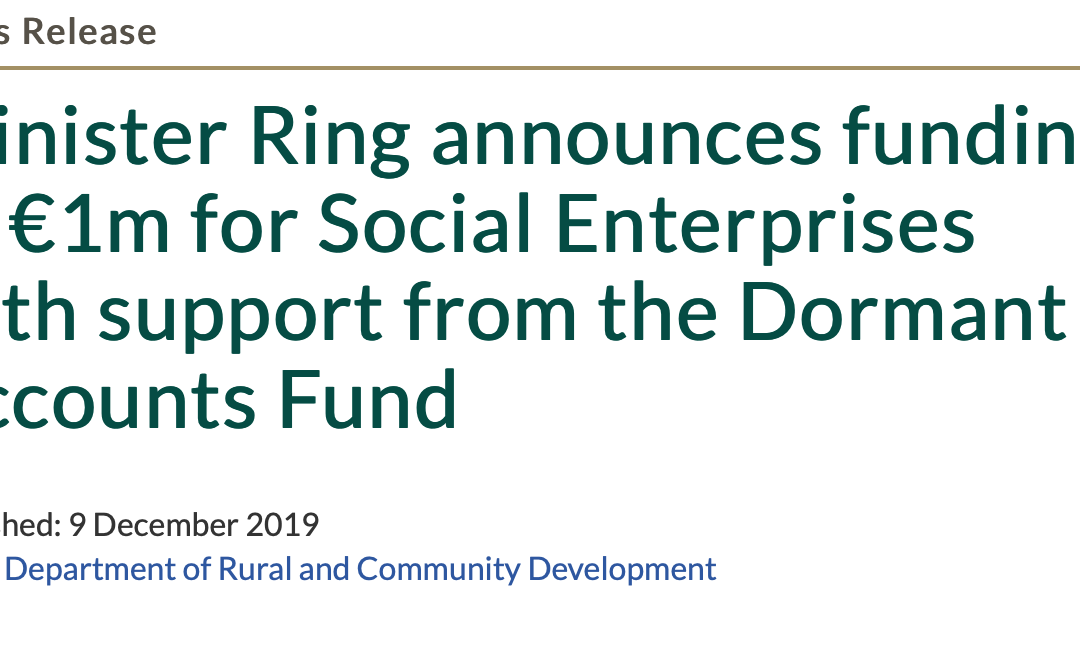From: Department of Rural and Community Development
Mr Michael Ring TD, Minister for Rural and Community Development, today (Monday 9th December) announced the allocation of €1 million in funding from the Dormant Accounts Fund to 124 social enterprise projects across the country.
The Small Capital Grants Scheme supports a key policy commitment in the National Social Enterprise Policy for Ireland, which the Minister published in July, to grow and strengthen social enterprises.
Announcing the funding today, Minister Ring said:
The Minister continued:
The Minister concluded by thanking all 49 Local Development Companies who are assisting the Department in the administration of the scheme.
A full list of the successful 124 social enterprises, including the grant amounts awarded, is available here
ENDS
Notes to Editors
Social Enterprises
Social enterprises are businesses whose core objective is to achieve a social, societal, or environmental impact. Like other businesses, social enterprises pursue their objectives by trading in goods and services on an ongoing basis. However, surpluses generated by social enterprises are re-invested into achieving the core social objectives.
They frequently work to support disadvantaged groups such as the long-term unemployed, people with disabilities, travellers, etc., or to address issues such as food poverty, social housing, or environmental matters.
Ireland’s first [internal-link undefined | National Social Enterprise Policy ] was launched by the Department of Rural and Community Development on 18 July 2019, with the objective creating an enabling environment for social enterprise to grow and to contribute more fully to Ireland’s social and economic progress.
The Policy is focused on three main objectives:
1. Building Awareness of Social Enterprise
2. Growing and Strengthening Social Enterprise
3. Achieving Better Policy Alignment
Dormant Accounts Fund
The Dormant Accounts Acts 2001-2012, together with the Unclaimed Life Assurance Policies Act 2003, provide a framework for the administration of unclaimed accounts in credit institutions (i.e. banks, building societies and An Post) and unclaimed life assurance policies in insurance undertakings.
The main purpose of the legislation is to reunite account or policy holders with their funds in credit institutions or insurance undertakings and in this regard, these bodies are required to take steps to identify and contact the owners of dormant accounts and unclaimed life assurance policies.
However, in order to utilise the un-used funds in dormant accounts and unclaimed policies to best effect, the legislation also introduced a scheme for the disbursement of funds that are unlikely to be reclaimed from dormant accounts and unclaimed policies for the purposes of measures to assist:
1. the personal and social development of persons who are economically or socially disadvantaged;
2. the educational development of persons who are educationally disadvantaged; or
3. persons with a disability.
Social enterprises work in many ways to assist people in these categories.



